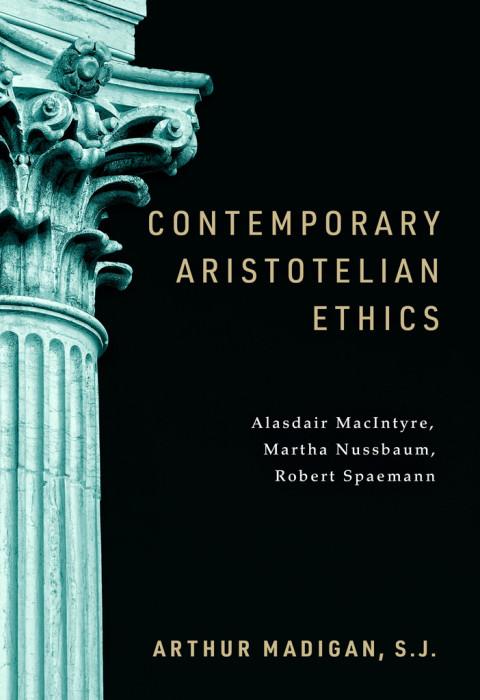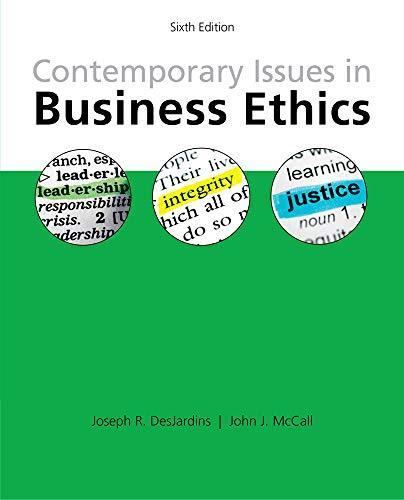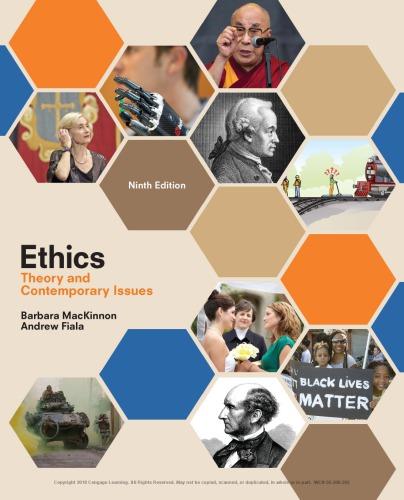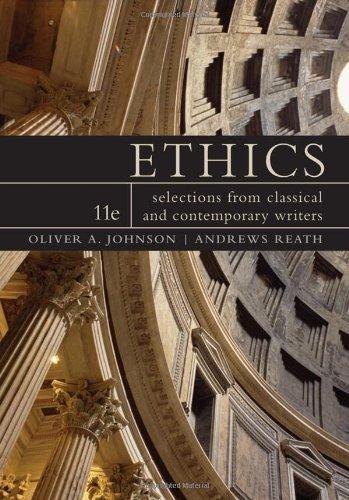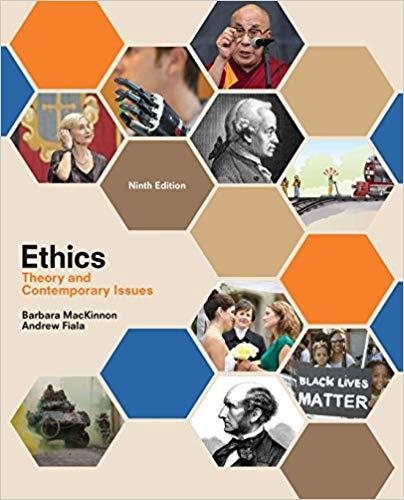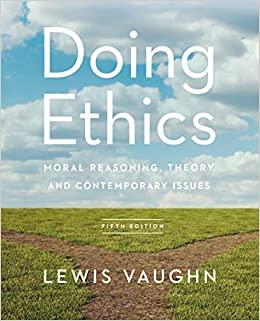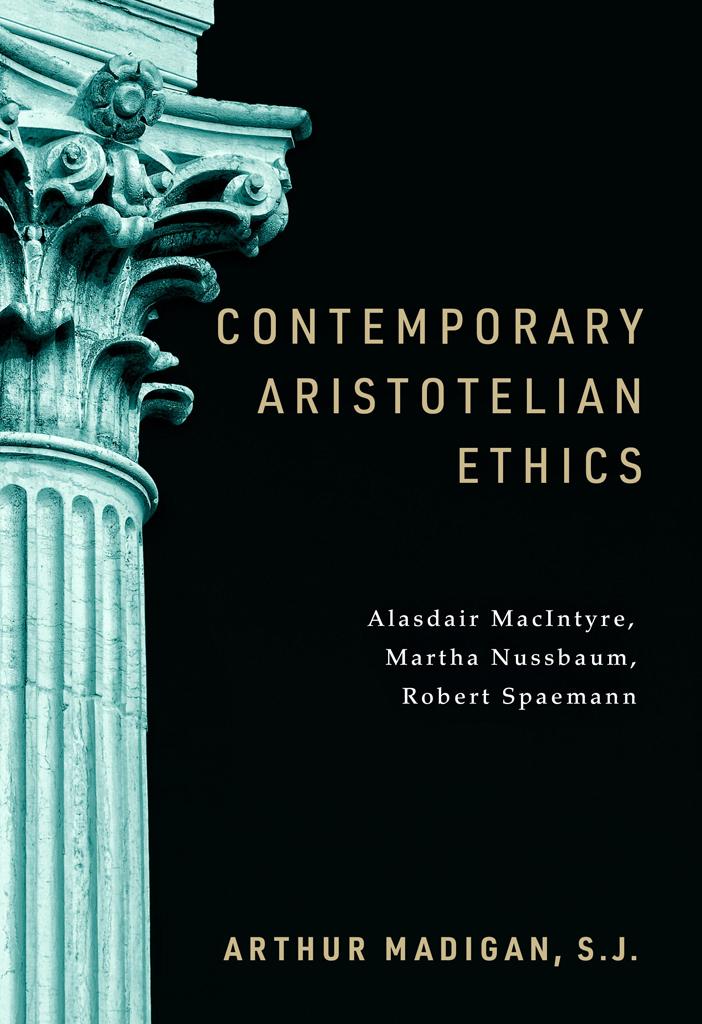CONTEMPORARY ARISTOTELIAN ETHICS
Alasdair MacIntyre, Martha Nussbaum, Robert Spaemann
ARTHUR MADIGAN, S.J.
University ofNotre Dame Press
Notre Dame, Indiana
Copyright © 2024 by the University of Notre Dame Notre Dame, Indiana 46556 undpress.nd.edu
All Rights Reserved
Published in the United States of America
Library of Congress Control Number: 2023946554
ISBN: 978-0-268-20759-5 (Hardback)
ISBN: 978-0-268-20758-8 (WebPDF)
ISBN: 978-0-268-20761-8 (Epub3)
This e-Book was converted from the original source file by a third-party vendor. Readers who notice any formatting, textual, or readability issues are encouraged to contact the publisher at ebooks@nd.edu
C O N T E N T S
Introduction
CHAPTER 1 Anglo-American Moral Philosophy, 1950–1990
CHAPTER 2 Alasdair MacIntyre’s Revolutionary Aristotelianism
CHAPTER 3 The Liberal Aristotelianism of Martha Nussbaum
CHAPTER 4 The Personalist Aristotelianism of Robert Spaemann
CHAPTER 5 Issues Facing Aristotelians
Notes
Index
I N T R O D U C T I O N
In the fall of 1969, I enrolled in an introductory ethics course at the University of Toronto taught by David P. Gauthier, who went on to chair Toronto’s graduate Department of Philosophy and later to teach at the University of Pittsburgh. This course was a wonderfully lucid and well-organized introduction to mainstream Anglo-American moral philosophy. We used William K. Frankena’s Ethics, a summary of the main questions addressed in that moral philosophy and of the main answers to those questions. Included therein were various classical and contemporary readings.
Two aspects of the course left a deep impression on me. One was the opposition between deontological ethics and teleological ethics. I will have a good deal to say about deontological and teleological ethics in the pages that follow. For the moment, let me say, very roughly, that deontological ethics is a kind of ethics that focuses on duties and obligations, on what is right and what is wrong. A well-known example of deontological ethics is the ethics of Immanuel Kant, and perhaps the most famous, or infamous, example of Kant’s ethics in practice is the claim that one may never tell a lie, not even to save a human life. Again very roughly, teleological ethics is an ethics that focuses on fulfillments and satisfactions, on what things are good and bad for human beings. A well-known example of teleological ethics is the utilitarianism of John Stuart Mill, who counseled that we should act in whatever way promotes the greatest possible good or satisfaction for the greatest
number of human beings. The standard objection, of course, is that the utilitarian principle could be used to justify all sorts of injustices, such as the punishment of innocent people.
The other aspect of Gauthier’s course that left a deep impression was G. E. M. Anscombe, “Modern Moral Philosophy,” Philosophy:The Journal of the Royal Institute of Philosophy 33, no. 124 (1958): 1–19, with its criticism of both Kantian and utilitarian ethics. If Anscombe was right, the deontological ethics of Kant was incoherent and the teleological ethics of utilitarianism was really the abandonment of any ethics worthy of the name. In 1969, I was only beginning to understand the significance of Anscombe’s argument.
In the fall of 1979, I began to teach philosophy at Boston College. When, on occasion, I had the opportunity to teach ethics, I went back to Gauthier’s course, to Kant’s Groundwork for the MetaphysicsofMoralsand to Mill’s Utilitarianism, and to the problem of teleology and deontology. I tried to lead my students to appreciate the radical difference between the two and to make a reasoned choice in favor of one or the other. Most of them declined to choose. They insisted on affirming both deontology and teleology, refusing to accept the troubling implications of either. Disconcerting as it was for me, they wanted both. They knew better than I did.
In fall of 1981, I began to read Alasdair MacIntyre’s AfterVirtue. It was the first sustained critique of modern ethics and modernity that I had ever read. He acknowledged a debt to Anscombe’s “Modern Moral Philosophy,” but MacIntyre offered a different and much more detailed analysis of what had gone wrong in modern ethics. He also outlined an alternative to that ethics: an updated version of Aristotle’s ethics of the virtues. After Virtue opened up a new philosophical world.
In spring of 1986, at the Center for Hellenic Studies in Washington, DC, I read a manuscript version of Martha Nussbaum’s The Fragility of Goodness. Here was a riveting example of how to read Greek philosophy in the light of Greek tragedy and Greek
tragedy in the light of Greek philosophy. At the same time, Fragility ofGoodnessset me a problem. Impressed by MacIntyre’s reading of Aristotle, and now attracted by Nussbaum’s reading, I did not see how the two readings could be combined. MacIntyre read Aristotle with a view to diagnosing what had gone wrong with modern moral philosophy and to prescribing what should be done about it. Nussbaum did nothing of the kind. Her Aristotle was opposing Plato, or opposing a kind of Platonism that sought to deny or eliminate the dimensions of fragility and vulnerability that are inherent in human life. From this point on, as I began to teach electives on the Nicomachean Ethics, I went back and forth between readings influenced by MacIntyre and readings influenced by Nussbaum. This was a stimulating and fruitful experience for me, but it must have baffled my students.
Early in the 1990s, my friend and colleague Paul McNellis, S.J., introduced me to the work of Robert Spaemann, who was then teaching at the Ludwig-Maximilians-Universität in Munich, and whose work was only beginning to be noticed in the Anglo-American world. He persuaded me to read Spaemann’s Philosophische Essays. The more I read, the more impressed I was. Here was someone analyzing modernity in a way that owed much to Aristotle and Aquinas, but also speaking a philosophical dialect that owed much to Kant and Hegel. Here was someone sensitive to the achievements of modernity, especially its awareness of human dignity, but also critical of modernity on many different counts. Here was another distinctive Aristotelian voice.
It took years for me to see it, but MacIntyre, Nussbaum, and Spaemann were weaning me away from my focus on the opposition between deontological and teleological ethics. Later than I should have, I woke up to the fact that the differences among their readings of Aristotle, or, better, their forms of Aristotelianism, were more significant than the differences between Kant and Mill that had
held my attention for so long. This book is an attempt to pull together what I have learned from these three remarkable thinkers.
If MacIntyre, Nussbaum, and Spaemann are three of the more important figures in the revival of Aristotelian ethics, they are by no means its only representatives. It would have been worthwhile to study such Aristotelians as Henry Veatch and Mortimer Adler, to study the New Natural Law theory of Germain Grisez, John Finnis, and Joseph Boyle, and to study the influence of Philippa Foot, Rosalind Hursthouse, Timothy (now Sophie-Grace) Chappell, and others on Aristotelian ethics. The full history of the twentieth-century Aristotelian revival remains to be written, and it may be some time before anyone is in a position to write it. What has led me to focus on MacIntyre, Nussbaum, and Spaemann is that they have written not just for specialists but for educated and reflective general readers.
Time, as always, has marched on. MacIntyre’s and Spaemann’s more recent writings remain within the Aristotelian tradition, broadly understood. Nussbaum’s more recent work has moved in different directions. In this book I have focused on her earlier Aristotelian writings.
I have written Contemporary Aristotelian Ethics for readers who have not yet read MacIntyre or Nussbaum or Spaemann, but who want to understand their thought and are ready to engage with it in some depth and detail. I have attempted to take such readers fairly deep into the details of their thinking about ethics, but this book cannot substitute for the study of their works themselves. I have also written for readers who have some familiarity with MacIntyre, Nussbaum, and/or Spaemann, and who want to explore alternative forms of Aristotelian ethics. I have written for philosophers who, perhaps not committed Aristotelians, take Aristotelian ethics seriously as a live philosophical option. But most of all, I have written the book for educated and reflective readers, the people
whom MacIntyre calls “plain persons,” that is, the readers that MacIntyre, Nussbaum, and Spaemann themselves are addressing.
My debts are many and various. Alasdair MacIntyre and Martha Nussbaum have helped me at various stages in the genesis of this book. Margaret Holland has ably and generously commented on chapter 1, about Anglo-American moral philosophy in the period 1950 to 1990. Christopher Stephen Lutz has ably and generously commented on chapter 2, on MacIntyre. Margaret Holland and Paulette Kidder have ably and generously commented on chapter 3, on Nussbaum. Jeremiah Alberg, Oliver O’Donovan, and Robert Sokolowski have ably and generously commented on chapter 4, on Spaemann. I have learned much from these scholars and should no doubt have learned more. They have saved me from many mistakes. The errors and infelicities that remain are, of course, my responsibility.
I am grateful to Boston College and to the Fitzgibbons family for entrusting me with the Albert J. Fitzgibbons Professorship. It has been an honor. I would also like to thank Boston College for its support of a sabbatical leave in academic year 2017–18, in which this book came close to completion, and to the staff of the Boston College Libraries, who have helped it to completion in more ways than they can know. I am deeply indebted to the students I have taught at Fordham University, Boston College, John Carroll University, Marquette University, and Le Moyne College. My greatest debt is to the Philosophy Department at Boston College. Most of the work for this book was done during the ups and downs of my six years as department chair, 2010–16. I am deeply grateful to my colleagues. In ways that I cannot yet articulate, those ups and downs have made this a better book than it might have been. Whatever our differences, we have respected one another’s intellectual projects, and we have wanted the best for our students. As, I trust, did Aristotle.
My manuscript was received by University of Notre Dame Press in the summer of 2020 and was favorably reviewed. I thank the two reviewers for their helpful remarks and generous praise of my work. I would also like to thank two editors at UNDP: Stephen Little, who oversaw this project in its early stages, and Emily R. King, who has been overseeing the project since August 2022.
In the fall of 2020, I suffered two strokes, the first mild and the second not. I have been working very hard on my recovery and am making progress. I have received wonderful support from my Jesuit community, family, friends, and from the many physicians, nurses, and helpers who have seen to my immediate and long-term needs. They have been a blessing. I also thank Deborah De Chiara-Quenzer, a colleague and friend, who during this time helped me in completing the final stages of the project, including the communications with UNDP on my behalf.
Campion Center, Weston, Massachusetts April 2023
CHAPTER ONE
ANGLO-AMERICAN MORAL PHILOSOPHY, 1950–1990
The last two decades of the twentieth century witnessed a remarkable revival of Aristotelian ethics in the Anglo-American philosophical world. This revival did not take place in a vacuum. It was in large part a response to a kind of ethics that was dominant in Anglo-American philosophical circles for most of the twentieth century and that has by no means disappeared. The revival cannot be properly understood without an understanding of that ethics. This first chapter will attempt to characterize Anglo-American moral philosophy not as it is today but as it was in the period roughly from 1950 to 1990.1
The choice of 1950 as a point of departure is an attempt to begin at a point where the influence of British analytic philosophy in North America was sufficiently advanced that one could speak of AngloAmerican moral philosophy.2 The choice of 1990 as a closing date is in recognition of two changes that had taken place in AngloAmerican moral philosophy by that time: increased attention to the history of ethics and the recognition of virtue ethics as a field in its own right.3
I have based this chapter on a survey of introductory ethics textbooks from the period in question. None of these introductions is authoritative in itself, but taken together they convey a reliable idea of the issues that Anglo-American moral philosophers were discussing and the philosophical categories in which they were discussing them. They thus reflect the ethics to which the Aristotelian revival is in large part a response.4
I have consulted the following introductions: Ewing, Ethics; M. Warnock, Ethics since 1900; Frankena, Ethics; G. J. Warnock, Contemporary Moral Philosophy; Harman, The Nature of Morality; Rachels, The Elements of Moral Philosophy; and Raphael, Moral Philosophy. I have also consulted Kai Nielsen’s article on the problems of ethics in Edwards, EncyclopediaofPhilosophy.5
Someone who examines these introductory texts may at first be struck more by their dissimilarities than by their similarities. This should come as no surprise. Authors tend to draw on their distinctive experience as teachers. Publishers tend to claim that their introductions are different from, or better than, competing texts. Closer examination, however, discloses that these texts share a common core of authors, texts, and issues from the preceding two generations that they discuss, whatever else they may discuss. The following authors and titles capture this common core: G. E. Moore, PrincipiaEthica(1903); H. A. Prichard, “Does Moral Philosophy Rest on a Mistake?” (1912); W. D. Ross, TheRightandtheGood(1930); A. J. Ayer, Language, Truth, and Logic (1936); C. L. Stevenson, Ethics and Language (1944); and R. M. Hare, The Language of Morals (1952). The issues raised by these texts—the merits of naturalism and intuitionism, the relative priority of right and good, the positivist challenge to the meaningfulness of ethical language, and the responses to that challenge—are at the heart of AngloAmerican moral philosophy in our period.6
Some of the introductions limit themselves to the common core of authors and issues, for example, Mary Warnock’s Ethics since
1900, and Geoffrey Warnock’s Contemporary Moral Philosophy. When the introductions go beyond this common core, they do so in three main ways.
The first way is historical. Some of the introductions go back beyond Moore to the utilitarianisms of Henry Sidgwick, John Stuart Mill, and Jeremy Bentham, of which Moore was critical. Some go back to Kant and Hume or even further back. The introductions by Ewing, Frankena, Harman, Rachels, and Raphael all include this kind of historical material.
A second way is by offering typologies of different ethical theories. In this they are recovering the approach of Henry Sidgwick, TheMethodsofEthics(1874; 7th ed., 1906) and of C. D. Broad, Five Types of EthicalTheory (1930), but not necessarily following either of their classifications. Frankena’s typology of teleological ethics and deontological ethics, each with subtypes, seems to me the most explicit and detailed, but the introductions regularly contrast different normative theories with one another.
A third way distinguishes explicitly between first-order (or normative) ethics and second-order ethics (or metaethics) offering typologies of metaethics. When an introductory text does not mention metaethics or distinguish between normative ethics and metaethics, I take it that is because of the author’s pedagogical judgment about what beginning students need to know, not ignorance of the distinction itself. Again, I find Frankena’s delineation of naturalism, intuitionism, and noncognitivism to be the most explicit and detailed, but other introductions that talk about metaethics draw essentially the same distinctions. The technical terms in this paragraph will be explained shortly.
Anglo-American ethics in our period was characterized by a widely shared conception of what ethics is: the attempt to clarify ethical concepts and to critically examine ethical theories and the arguments for and against them.7 As a reflective activity, ethics does not simply accept the ethical views of parents, authoritative teachers, communities, and traditions. It subjects them to examination and criticism. Ethics is thus a matter of rational argument, of stating claims, explaining them, and giving reasons for them. Ethics includes both constructive arguments for various ethical theories and particular ethical claims and negative arguments against ethical theories and particular ethical claims.
Normative Ethics and Metaethics
Anglo-American ethics in this period takes for granted a distinction between first-order ethical questions and second-order ethical questions, or, as is more commonly said, between normative ethics and metaethics. The distinction is a tool of analysis and clarification. Most of the authors commonly studied in Anglo-American ethics— Hume, Kant, the utilitarians, Moore, and Ross—did not themselves distinguish explicitly between normative ethics and metaethics.8
Broadly speaking, normative ethics considers questions about value (what things are good or bad, what makes them good or bad) and obligation (what things we are obliged to do, what things we are obliged not to do, and why). Normative ethics includes normative ethical theories (about which more below) and particular ethical judgments. Metaethics, by contrast, steps back from ethical principles and particular ethical judgments to consider what they mean and how they are or might be justified. Anglo-American ethics typically envisioned metaethics as neutral with respect to issues in normative ethics and particular ethical claims. At the same time, it treated metaethics as clarifying and establishing the bases on which
normative ethics could proceed, or, as the case may be, exposing and demolishing the bases on which normative ethics might have tried to proceed.
Normative Ethical Theories: Teleological and Deontological
Three main families of normative ethical theories were in play: teleological ethics, deontological ethics, and divine command ethics. Let us begin with the first two. Here we need to distinguish between the broad senses of “teleological” and “deontological” and the stricter senses of these two terms.
In the broad sense, a teleological ethics is an ethics of fulfillment, that is, an ethical theory that focuses on what fulfills human beings (and in some versions, other sentient beings). In the broad sense, a deontological ethics is an ethics of obligation, that is, an ethics that focuses on duties or obligations that we have to one another and/or to ourselves (and in some versions, to other sentient beings). If we understand “teleological” and “deontological” in these broad senses, one and the same ethical theory can have both a teleological aspect and a deontological aspect. In such a case the question would then arise about whether one of these two aspects was prior to, more basic than the other. This question has been formulated as the question about the relative priority of the right and the good.9 Is the right, what human beings ought to do and ought not to do, more basic than the good, what is good for human beings, what fulfills them? Or is the good more basic than the right? A teleological ethics would be an ethics in which good is prior to right. A deontological ethics, by contrast, would be an ethics in which right is prior to good. But so long as the terms are taken in their broad senses, it is possible to envision both a deontological ethics with important
teleological features and a teleological ethics with important deontological features.
Alongside the broad sense, however, this ethics also knew of stricter definitions of teleological ethics and deontological ethics, such that the two were mutually exclusive. Thus Frankena:
A teleological theory says that the basic or ultimate criterion or standard of what is morally right, wrong, obligatory, etc., is the nonmoral value that is brought into being. The final appeal, directly or indirectly, must be to the comparative amount of good produced, or rather to the comparative balance of good over evil produced…. Deontological theories deny what teleological theories affirm. They deny that the right, the obligatory, and the morally good are wholly, whether directly or indirectly, a function of what is nonmorally good or of what promotes the greatest balance of good over evil for self, one’s society, or the world as a whole. They assert that there are other considerations that may make an action or rule right or obligatory besides the goodness or badness of its consequences —certain features of the act itself other than the value it brings into existence, for example, the fact that it keeps a promise, is just, or is commanded by God or by the state. Teleologists believe that there is one and only one basic or ultimate rightmaking characteristic, namely, the comparative value (nonmoral) of what is, probably will be, or is intended to be brought into being. Deontologists either deny that this characteristic is right-making at all or they insist that there are other basic or ultimate right-making characteristics as well.10
If we take teleological ethics and deontological ethics in these strict senses, there is no question of a theory’s being both teleological and deontological. A theory can be one or the other but not both.
The early utilitarians were also hedonists, and introductions to ethics in our period typically included discussions of hedonism. “Hedonism” is a highly ambiguous term. Frankena helpfully distinguishes four different things that people mean by it. One is that happiness and pleasure are the same thing. A second is that all pleasures are intrinsically good. A third is that only pleasures are intrinsically good. A fourth is that pleasantness is the criterion of intrinsic goodness.11
Introductions to ethics typically distinguished between a purely quantitative hedonism, attributed to Jeremy Bentham, that recognizes differing quantitiesof pleasure and pain but not different kindsof pleasure and pain, and a qualitative hedonism, attributed to John Stuart Mill, that recognizes not merely different quantities of pleasure and pain but different types or species of pleasure and pain. These introductions pointed out that the original utilitarian project of arriving at decisions by comparing the amounts of pleasure and pain that would result from different courses of action presupposed quantitative hedonism. Recognition of the qualitative diversity of pleasures and pains made this kind of calculation much more complicated if not impossible.
Moral philosophers in this period knew very well that utilitarianism is not the only form of teleological ethics and that Kantianism is not the only form of deontological ethics. Nonetheless, their introductory texts tended to focus on the utilitarianisms of Bentham and John Stuart Mill as the principal (most important, influential, interesting) versions of teleological ethics and on the ethics of Kant as the principal version of deontological ethics. They typically highlighted Kant’s insistence that genuine moral principles or maxims have to be universalizable, that is, they have to apply to every rational agent. Without going further into the complexities of Kant’s categorical imperative, they might raise the question whether universalizability was a sufficient condition for something to count as a moral principle or maxim. They typically highlighted the utilitarian
principle of the greatest happiness for the greatest number. They might go on to note that some utilitarians thought that agents should evaluate each and every moral decision by direct reference to that principle (act utilitarianism), but others thought the principle should be used to develop and evaluate moral rules, which agents then ought to follow even if on occasion following them resulted in a less satisfactory result (rule utilitarianism).
It is possible to draw a distinction between individual acts and general rules within deontological ethics, but deontological ethicians have generally presented our obligations in the form of rules. This raises a variety of questions. What are these rules? Where do they come from, or what are they based on? What should we do if rules happen to conflict? In an attempt to answer this last question, W. D. Ross proposed the idea of a prima facie duty, that is, a real duty that might on occasion have to yield to a higher or more important duty.12 The notion of prima facie duties invites the further question of how we know which duties take precedence over other duties. That question would take us into metaethics, which we will consider shortly.
There was something attractive or appealing about utilitarianism: both its egalitarianism and its acute sensitivity to the effect of action on the welfare of people at large. Still, the principle of the greatest happiness for the greatest number might seem to justify actions that many people would not think were justifiable, such as the sacrifice of innocent persons to benefit larger groups or to protect those groups from harm. There was something attractive or appealing about Kantianism: its insistence on respect for persons. Still, Kant’s ethics also appears to forbid any and all lying, even to people bent on committing murder.13 The combination of attractive points and difficulties in Kantianism and utilitarianism invites a number of questions. Is it possible to devise a form of teleological ethics that is not subject to the difficulties of utilitarianism? Is it possible to devise a form of deontological ethics that is not subject to the difficulties of
Kantianism? Is it possible, despite the incompatibility of teleological ethics and deontological ethics, strictly understood, to combine what is attractive in teleological ethics with what is attractive in deontological ethics?
Normative Ethical Theory: Divine Command
Anglo-American ethics recognized a third kind of normative ethical theory: divine command theory, also known as theological voluntarism. What divine command theories have in common is the idea that what it is right for people to do is what God commands them to do. Most if not all of these theories were developed in a Jewish or Christian context, with the biblical Ten Commandments as the prime examples of divine commands.
Not all introductions to ethics discussed divine command ethics, but some, such as Frankena’s, recognized two different types of divine command theory. In the first kind, the divine commands are simply that, commands, commands whose content could be, or could have been, different from what it is. The content of the divine commands is fundamentally arbitrary. For example, it is wrong to steal, because God forbids it, but God could have commanded people to steal, and then it would be right, indeed obligatory, for people to steal. The second kind of divine command theory rejects the view that the content of the divine commands is arbitrary. It posits that God commands people to do what is good for them and to refrain from doing what is bad for them.14
Egoism and Altruism
Given that the best-known version of deontological ethics, Kantianism, the best-known version of teleological ethics, utilitarianism, and at least some forms of divine command ethics can
place heavy demands on individuals, it was only natural that AngloAmerican ethics should face the problem of self-interest and the competing claims of egoism and altruism.
Moral philosophers recognized two different kinds of egoism: psychological egoism and ethical egoism. Psychological egoism is the view, really a thesis in psychology, that as a matter of fact human beings always act with a view to their own self-interest as they perceive it. To take an example: If someone cites instances of apparently selfless or self-sacrificing behavior, the psychological egoist replies, “They are doing it because they think it is in their interest to do it. Otherwise they would not be doing it.” Ethical egoism, by contrast, is not a factual claim but a normative claim: “People ought to act in their own self-interest.” Commending ethical egoism presupposes that it is possible, if undesirable, for people not to act with a view to their own self-interest. If psychological egoism were true, there would be no point to commending ethical egoism. We would all be acting for our own self-interest, real or perceived, already. Nonetheless, people sometimes blur the line between ethical egoism and psychological egoism, or even appeal to psychological egoism in support of ethical egoism. Some of the moral philosophers of our period criticized that appeal as fallacious. Some argued that psychological egoism is either false or trivially true.15
To judge by the introductions to ethics, moral philosophers in our period were not of one mind about how to reply to ethical egoism or even how to formulate the issue.16 One approach was to address the question, “Why should we be moral?” or “Why should we do what is right?” In response to this, Kurt Baier argued that a consistent egoist could not adopt specifically moral rules. Any rules that he or she might adopt would be merely rules of thumb, subject to self-interest, not genuinely moral rules, which would be superior to self-interest. He then developed what he called “the moral point of view,” which he thought could serve as a criterion by which to distinguish true
moral rules from false moral rules. Taking the moral point of view means doing things on principle, not out of self-interest. The principles in question are taken to apply to everyone, not just to some people. They must be for the good of everyone, not just the good of some people.17 Baier argues that we have good selfinterested reasons to adopt the moral point of view. I take it he means by that reasons genuinely to make that viewpoint our own, to adopt it as superior to considerations of self-interest, not just provisionally or as a rule of thumb: “The answer to our question ‘Why should we be moral?’ is therefore as follows. We should be moral because being moral is following rules designed to overrule self-interest whenever it is in the interest of everyone alike that such rules should be generally followed.”18 Very roughly, the argument is that pursuit of one’s long-term self-interest makes it reasonable to accept limits on one’s pursuit of short-term self-interest. The rational egoist ought to accept limitations on his or her egoism. Frankena’s reply to ethical egoism accepts Baier’s distinction between the viewpoint of self-interest and the viewpoint of morality. “Prudentialism or living wholly by the principle of enlightened selflove just is not a kind of morality.” “The moral point of view is disinterested, not ‘interested.’”19 He summarizes, more succinctly than Baier did, what the moral point of view actually is: “One is taking the moral point of view if one is not being egoistic, one is doing things on principle, one is willing to universalize one’s principles, and in doing so one considers the good of everyone alike.”20 But, Frankena suggests, it is at least arguable that living morally is a form of excellent activity and a part of living the good life. It could make good sense for people who are trying to make a rational decision about how to lead their lives to adopt the moral point of view. Somewhat along the same line, Rachels presents three arguments in favor of ethical egoism and criticizes all three. He presents three arguments against it, criticizes the first and second,
but finds that the third, from the arbitrariness of treating oneself differently from others, shows that ethical egoism fails as a moral theory.21
Statements of the moral point of view were open to the charge of stating a particular moral point of view, that of liberal modernity, not the viewpoint of morality as such. Thus Kai Nielsen wrote,
However universalistic his intentions, what in fact [Kurt] Baier is doing is to characterize what is the moral point of view for a restricted cluster of moralities and most paradigmatically for liberal morality. It is a point of view which, by the very way it is characterized, is inescapably committed to regarding the “moralities” of slave societies, of caste societies, Nietzsche’s conception of master morality and his conception of slave morality and (Nietzsche aside) the conception of morality held by Plato and Aristotle as not being opposing moralities all taking the moral point of view, but as not really being genuine moralities at all.
But theorists of the moral point of view could admit the charge, deny that the moralities of Plato, Aristotle, Nietzsche, or of slave and caste societies were in fact moralities, and say that morality and liberal morality are one and the same.22
Metaethical Theories: Naturalism, Intuitionism, Noncognitivism
Given the opposition between teleological ethics and deontological ethics, and the contrast between both of them and divine command ethics, the question naturally arises whether there are good reasons to accept or reject these theories, good reasons to prefer one approach to the others. This leads naturally to issues of metaethics,
that is, issues about the meaning and justification of ethical claims and ethical theories. Our Anglo-American ethics recognized three main types of metaethical theories: naturalism (sometimes called definism), intuitionism (sometimes called nonnaturalism), and noncognitivism.23
The core idea of naturalism is that moral judgments, and in particular judgments of moral goodness and moral obligation, can be derived from facts that are not in and of themselves moral. One common version of naturalist metaethics is the view that ethical conclusions can be based on facts about what is good (beneficial) or bad (harmful) for human beings. The distinction between moral claims and nonmoral facts invites questions about the meaning and reference of the terms “moral” and “morality,” questions that are taken more and more seriously in the latter part of our period.
The core idea of intuitionism is that moral goodness is not identical with any natural property. For any natural property, such as being pleasant, it is an open question whether it is good or not. Goodness is not something that we reason to but something that we intuit or recognize directly. Any attempt to reason from a natural property of a thing to the thing’s being good begs the question whether that property is in fact good and commits (in the words of G. E. Moore) the naturalistic fallacy.24 The intuitionist thus posits not just a distinction between facts and goods, facts and obligations, but an unbridgeable gap between them. The naturalist, by contrast, either denies the distinction or accepts it but argues that the gap between the two can be bridged.
The core idea of noncognitivism is that ethical theories and particular ethical judgments are not matters of knowledge. They are not known or knowable either in the way that the intuitionist thinks they are (by some direct intuition) or in the way that the naturalist thinks they are (by derivation from nonmoral facts). Noncognitivism thus denies the claims of naturalism and intuitionism. Noncognitivists typically also propose alternative accounts of ethical theories,
particular judgments, and utterances, that is, of what they, the various theories, really are if they are not expressions of knowledge. One such account is the emotivism of A. J. Ayer and C. L. Stevenson, roughly the view that moral utterances are not truth claims but rather expressions of feeling or attitude.25 Another is R. M. Hare’s prescriptivism, roughly the view that the point of moral utterances is to influence people’s behavior.26
Facts and Values, Is and Ought
Consideration of normative ethics and metaethics brings us to the matter of facts and values and to what is often called the “is–ought problem.” Introductions to ethics commonly raised this problem apropos of a passage from book 3, part 1 of David Hume’s Treatise ofHuman Nature, in which he argues, or has been taken to argue, that books of ethics generally commit the logical fallacy of passing from factual claims to claims about duties or obligations. The passage has been the focus of so much study and commentary that I will quote it here: “In every system of morality, which I have hitherto met with, I have always remark’d, that the author proceeds for some time in the ordinary way of reasoning, and establishes the being of a God, or makes observations concerning human affairs; when of a sudden I am surpriz’d to find, that instead of the usual copulations of propositions, is, and isnot, I meet with no proposition that is not connected with an ought, or an oughtnot.”
This sort of inference is often called the “modal fallacy,” or a violation of “Hume’s law.” Whether or not this is the correct interpretation of the passage from Hume’s Treatise, it surfaces the question about the relationship between factual claims and ethical claims, or, as some would put it, the relationship between nonmoral claims and moral claims.27
The issue about the relationships of fact and value, fact and obligation, gave rise to a considerable literature, with some contributors holding that there is no passing from factual claims to ethical claims and others holding that there is some way to do precisely that.28 The details of these arguments need not concern us here. What united the two camps, however, was the assumption that there is enough of a difference between matters of fact and matters of value/obligation that the relationship between the two was a problem that needed to be faced. Some thinkers in our period questioned this assumption, perhaps most notably the Harvard philosopher Hilary Putnam.29
Relativism and Skepticism
Anglo-American moral philosophers in our period were well aware of issues about the objectivity and justification of ethical claims. These issues were central to the whole project of metaethics. Challenges to these claims went by the names of relativism, skepticism, and subjectivism. So far as I can tell, there was no general agreement about how these challenges should be met.
Frankena’s distinction of three kinds of relativism is perspicuous.30 The first of these is descriptive relativism, of which the best-known form is cultural relativism. This is the claim, in effect a thesis in sociology or anthropology, that different groups of people, different cultures, have substantively different ethics, that is, they recognize different things as good or bad, different things as obligatory or forbidden. At a certain level this is clearly true. What is disputed is how fundamental these differences are and what they do or do not entail for normative ethics.
The second type of relativism is normative relativism. Normative relativism asserts that different cultures shouldact on their different ethical beliefs or principles. Where descriptive relativism says that
people in culture X and people in culture Y have and act on different ethical principles, normative relativism says that it is right for people in culture X to act on their ethical principles and right for people in culture Y to act on their different ethical principles. The Romans are right to do as the Romans do. If, for example, a certain culture regards the claims of honesty as taking precedence over the claims of family loyalty, then people in that culture ought to give precedence to the claims of honesty. But if a certain other culture regards family loyalty as taking precedence over honesty, then people in that culture ought to give precedence to the claims of family loyalty.
The third type of relativism is metaethical relativism. This is the view that there is no objective rational way of justifying ethical claims, and thus that different, even contradictory, ethical claims are equally justified, or rather equally unjustified. This would seem to be close to, if not identical with, ethical skepticism, which we will take up in a moment.
Some people have blurred the lines between descriptive or cultural relativism, on the one hand, and normative and metaethical relativism, on the other, or even appealed to cultural relativism in support of normative or metaethical relativism. Moral philosophers in our period tend to criticize those appeals as fallacious.31 The differences between cultures, even if they go very deep, are not sufficient to establish that either normative or metaethical relativism is true.
Introductions to ethics in our period did not agree about how to describe the challenges of relativism and skepticism, much less about how to meet them. Ewing discusses skepticism on pages 26–27, 98, and 110–11 of his Ethics and then gives pages 111–15 to cultural relativism. He also discusses what he calls the subjective view of ethics on pages 26–27 and 156–57. Harman, whose index includes only proper names, has no discussion of skepticism or relativism, but his chapter 3 is entitled “Emotivism as Moderate
Nihilism.” Raphael has no index entries for “skepticism” or for “relativism” but does have a couple of entries for “subjectivism.” Rachels has no entries for “skepticism” or for “relativism,” but his second chapter is concerned with cultural relativism and his third chapter with subjectivism. Frankena does not discuss skepticism as such, presumably because he thinks his discussion of metaethical relativism says what needs to be said about it. Readers who look up “Ethical Skepticism” in Paul Edwards’s EncyclopediaofPhilosophywill be referred to “Emotive Theory of Ethics,” “Ethical Relativism,” and “Ethical Subjectivism.”
Philosophers in our period apparently recognized that issues about the objectivity and justification of ethical claims were too complex and difficult to be treated, on anything beyond the simplest level, in introductions to ethics. On a higher or more technical level there was no general agreement about how these issues should best be treated.32 In this situation, I would suggest that we draw a rough-and-ready distinction between two different contexts in which problems of objectivity, justification, relativism, skepticism, and subjectivism come up for discussion. The first context is theoretical: the continuing effort to come to terms with the legacies of Moore, Prichard, Ross, Ayer, Stevenson, Hare, and the heirs to their arguments. The second context is more obviously practical, not to say existential: addressing requests to justify particular claims about duties and obligations, or trying to answer the general question, “Why should I be moral?”
UNFINISHED BUSINESS
This section will highlight five sets of problems or difficulties that remained unsolved at the end of our period.
A first set of difficulties, at the level of normative ethics, may be called, for short, the problem of deontological and teleological ethics.
It would seem that an adequate or viable ethics should include both a teleological aspect pertaining to happiness or satisfaction and a deontological aspect pertaining to obligation. But it would seem impossible, on a strict construal of the terms, for one and the same ethics to be both teleological and deontological. This set of difficulties includes the problem about the relative priority of the right and the good and the debate about the claims of Kantian and utilitarian ethics.
A second set of difficulties, also on the level of normative ethics, has to do with self-interest, egoism, and altruism. Given the demands that the best-known version of deontological ethics, Kantianism, the best-known version of teleological ethics, utilitarianism, and at least some forms of divine command ethics can place on individuals, it was only natural that Anglo-American ethics should face the issue of self-interest and the competing claims of egoism and altruism.
A third set of difficulties appeared at the level of metaethics. Naturalism, intuitionism, and noncognitivism seemed to be the only available forms of metaethics, but each was beset by serious difficulties. Naturalism seemed to reason invalidly from factual claims to claims about value or obligation. Intuitionism seemed unable to give a satisfactory account of its intuitions. To some, at least, the various forms of noncognitivism seemed not to be explaining the meaning and justification of ethical claims so much as explaining them away.
A fourth set of difficulties concerned the relation of facts to values and especially to obligations. Could either deontological ethics or teleological ethics be grounded or justified on the basis of facts about the world or about human beings? If so, how? Could the claims of naturalism or intuitionism be justified, and the claims of noncognitivism be refuted, on the basis of facts? If so, how?
A fifth set of difficulties concerned the appropriate responses to the challenges of skepticism and relativism. Even if the various forms
